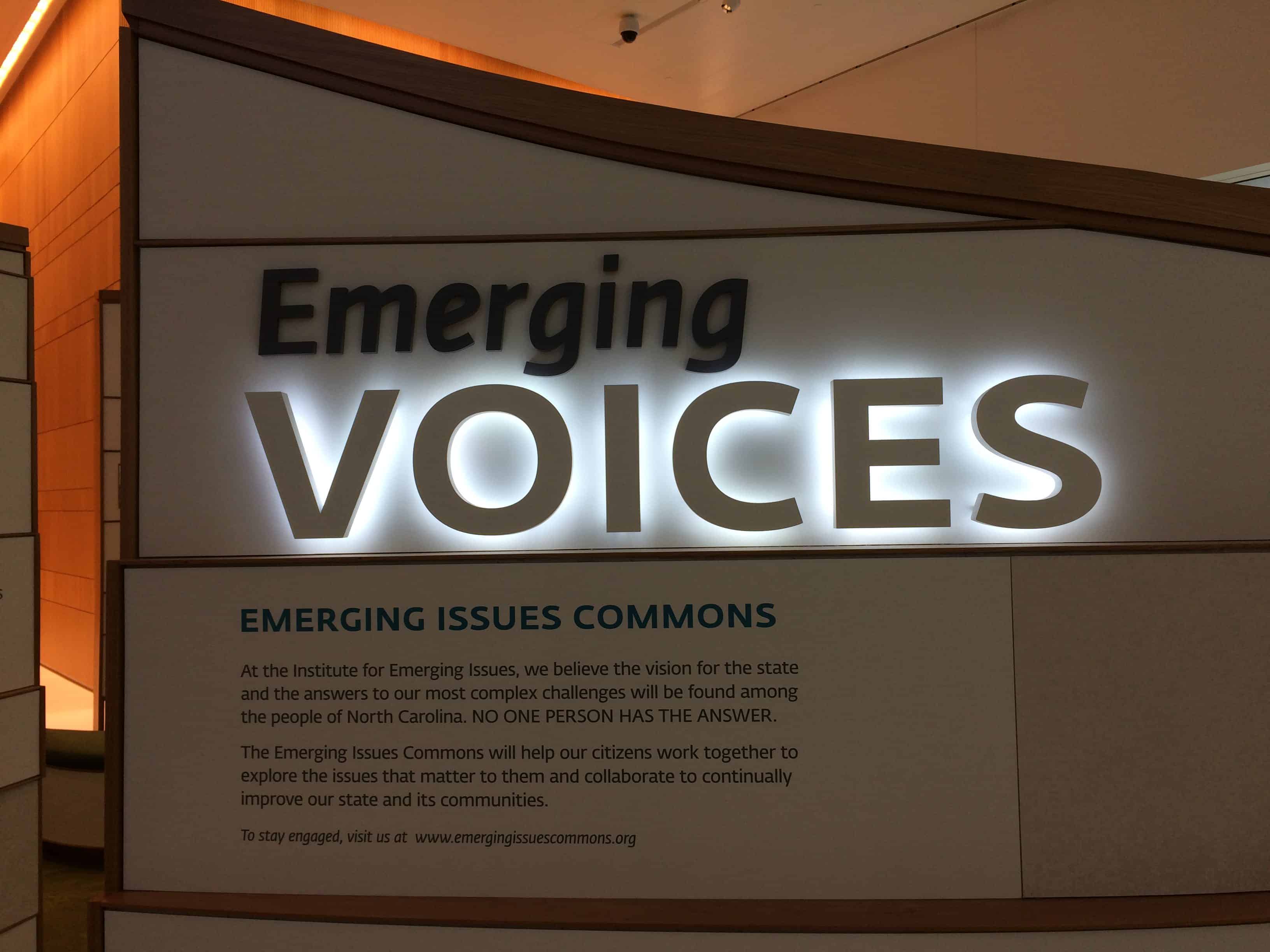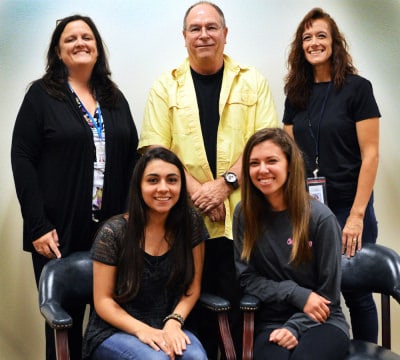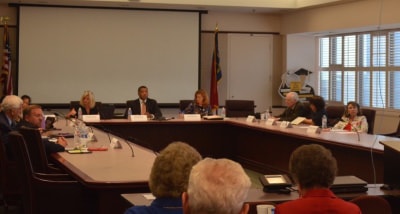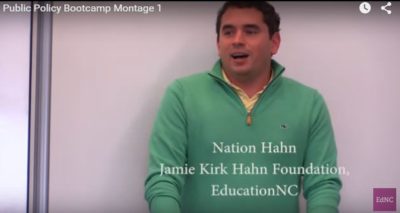Governments, laws, and public policies control the lives of every citizen in the United States, yet the vast majority of them choose to ignore it.
The nation generally prefers to trudge through the monotony of today rather than striving for the change and innovation of tomorrow.
Following the trend, the current generation of teenagers is the most apathetic group on record, with a shockingly low rate of volunteering.
Why?
These facts and questions were presented to me and my peers during the opening of our field trip to N.C. State’s Hunt Library and throughout the remainder of the day, we searched to find meaningful solutions.
Before our Public Policy Boot Camp for Students, Designed by Teachers, I had adopted a cynical view of public policy. I always abstained from commenting during discussion about changing the world, because I was convinced that the overgrown bureaucracies and the two-faced politicians of the world were insurmountable obstacles on the path to change.
It was nice to dream about the far away land of lawmaking and change, but I never believed that it was possible to make a substantial difference in society’s everyday issues. My opinion changed after the boot camp.
The educational summit taught me that public policy is not a distant fantasy, but a part of daily life.
Everything that people interact with — roads, monthly bills, and even the atmosphere — all connect to public policy, and in reality, influencing it is not too unimaginable. Meeting with a lawmaker only requires a simple phone call or email, and if the cause garners adequate support, politicians’ positions on the issue can be influenced.
Throughout the boot camp, this idea of the ability to influence society was stressed by every speaker. Nancy Rose spoke about 14 simple steps to achieve change within the North Carolina legislature, Matt Whitley shared the impact a small business can have on a community, and Tara Kenchen boldly told my small group that we held the ability to rework the entire United States economic system.
The speakers’ confidence, experiences, and strong messages penetrated my pessimistic frame of mind, and molded me into a believer in change. They assured everyone that the road to innovation is fraught with difficulties, and as Mebane Rash asserted, it is often full of failure and redirection, but it is still a path available to anyone.
The doubtful mindset I clung to at the beginning of the boot camp was accompanied with a strong lack of knowledge regarding the policy to which I was assigned: the economy. Fortunately, my apprehension was swiftly quelled when the session split into smaller classes to discuss our respective issues. In just 40 minutes, economic expert Mrs. Kenchen eloquently explained that the economy is not a complicated series of stocks and algorithms, it is simply anything pertaining to money.
All economic issues, in their most basic forms, refer to the processes of collecting and spending money; however, the simplicity of the issue does not weaken its controversial nature. For example, in politics, a major dividing line between the Republican and Democratic parties is their respective opinions on the issues of taxes and economic reforms.
Mrs. Kenchen also revealed that the economy unites all public policy issues, specifically referring to health, environment, and education. If the government could cure all disease, save the environment, and increase teacher pay for free, they certainly would, but all of those solutions cost money, of which there is too little. Each and every issue is actually defined and united by the economy, and thus, a solution to the economy’s problems would resolve countless other issues. My economic ignorance turned like a dime to enthusiasm and passion. Hopefully, this affinity for the subject can be utilized in my future studies, and if it is, I am comforted in the knowledge that the speakers from this trip, such as Mrs. Tara Kenchen, will gladly offer their aid.
While it was not addressed at the end of the assembly, the question from the start of the day still remained, why does the average person ignore public policy issues? The answer is different for every individual, but that does not add validity to his or her decision. During the summit, EdNC staff commented that our issues demand discussion across party lines and public cooperation in order to find solutions.
Most often, the lawmakers and legislators are the only people debating bills and ideas, but the common people must also get involved. Public policy applies to everyone, and to benefit society, all opinions must be heard.
Field trips, forums, and private conversations need not be the only locations of such discussion. Debate and the improvement of public policy is vital to the health of the nation, and while change is an arduous climb, it is not an insurmountable one.
On behalf of the students, thank you to Anita Brown-Graham, Institute of Emerging Issues; Nancy Rose, North Carolina Center for Public Policy Research; Todd Brantley, EdNC; Jamie Cole, NC Conversation Network; Sarah Langer Hall, IEI; Tara Kenchen, NC Community Development Initiative; Nation Hahn, Jamie Kirk Hahn Foundation; Damon Circosta, AJ Fletcher Foundation; Matt Whitley, Happy + Hale; Mebane Rash, EdNC; Kendall Hageman, IEI; Lisa Ruth, Tour Leader with the Hunt Library; and Raj Narayan, the Kenan Institute for Engineering, Technology, and Science.





